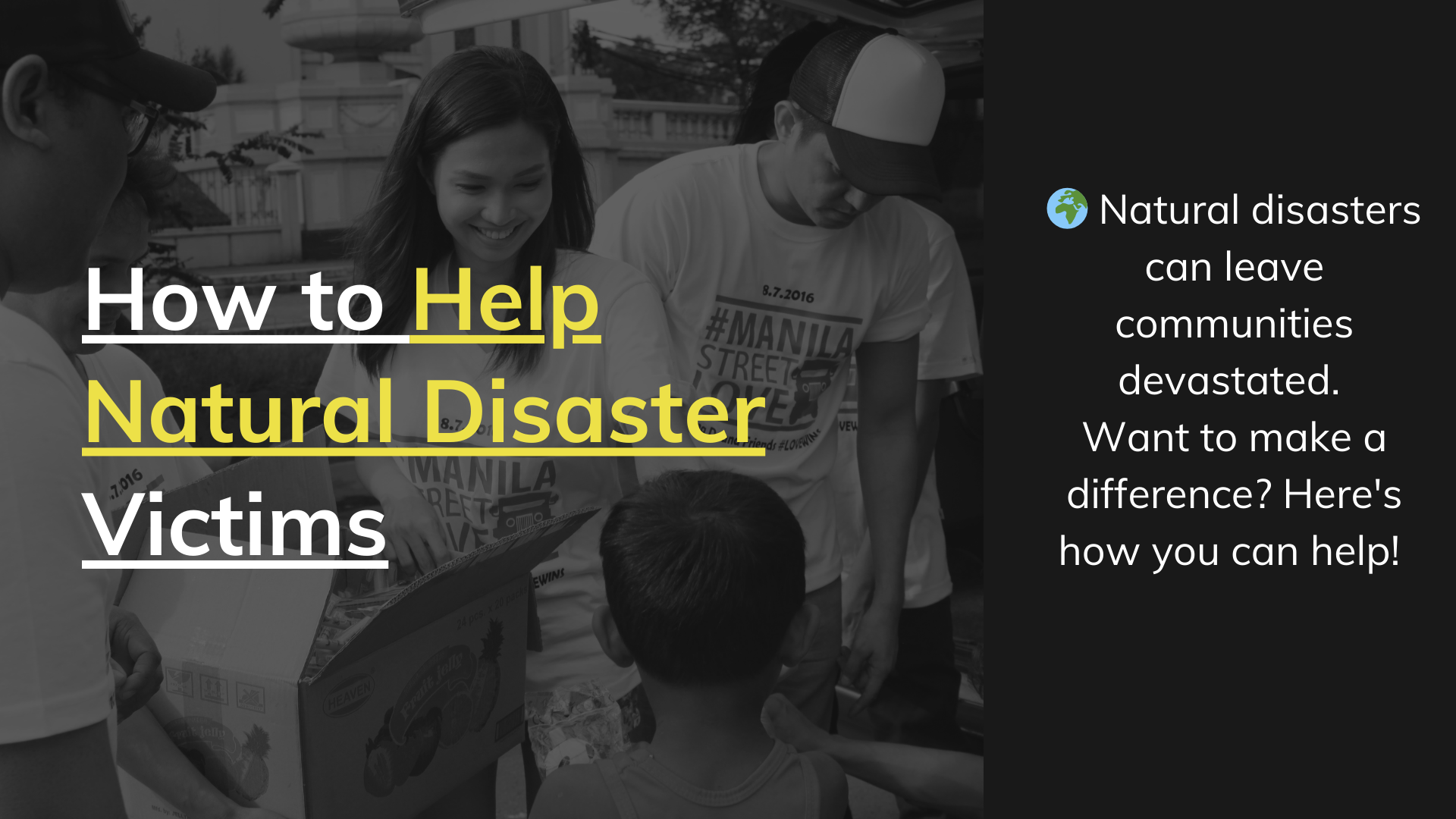Natural disasters can strike unexpectedly, leaving devastation in their wake and impacting countless lives. The aftermath of such events can be overwhelming, with communities facing the daunting task of rebuilding. While governments and organizations play a crucial role in providing immediate relief, individuals like you can make a significant impact by offering support to the victims. This article aims to provide a comprehensive guide on how to help natural disaster victims, emphasizing the importance of empathy and community involvement.
- Stay Informed
Before taking any action, it’s essential to stay informed about the specific needs and conditions of the affected area. Follow reputable news sources, official government statements, and updates from established relief organizations. Understanding the current situation will help you tailor your assistance to the most pressing needs of the victims.
- Donate Wisely
One of the most effective ways to assist natural disaster victims is through monetary donations to reputable organizations involved in relief efforts. These organizations have the expertise to allocate resources efficiently and effectively. Research and choose well-established charities with a track record of transparency and accountability to ensure your contributions make a meaningful impact.
- Volunteer Your Time
If you’re in close proximity to the affected area, consider volunteering your time and skills. Many organizations and local community groups actively seek volunteers for various tasks, such as distributing supplies, providing medical assistance, or assisting with cleanup efforts. Your hands-on involvement can make a tangible difference and provide comfort to those in need.
- Organize Fundraising Initiatives
Engage your community by organizing fundraising initiatives to collect funds for natural disaster victims. This could include charity walks, bake sales, or online crowdfunding campaigns. Collaborate with local businesses, schools, and community centers to maximize your reach and impact. Every small contribution adds up, and collectively, you can make a significant difference.
- Supply Drives
Coordinate or participate in supply drives to collect essential items for those affected by natural disasters. Items such as non-perishable food, clean water, clothing, blankets, hygiene products, and medical supplies are often in high demand. Work with local organizations to ensure that the collected items are distributed efficiently to those who need them the most.
- Offer Shelter and Support
If possible, provide temporary shelter to individuals or families displaced by the disaster. Reach out to local shelters, community centers, or religious institutions to explore opportunities for hosting those in need. Additionally, emotional support is crucial during challenging times, so lend a listening ear and offer a comforting presence to those who have experienced trauma.
- Utilize Social Media for Awareness
Leverage the power of social media to raise awareness about the ongoing situation and encourage others to contribute. Share information about reputable organizations, ongoing relief efforts, and specific needs of the affected communities. Social media platforms can be powerful tools for mobilizing support and fostering a sense of global community.
- Support Local Businesses
In the aftermath of a natural disaster, local businesses often suffer due to the disruption of regular activities. Support the local economy by purchasing goods and services from businesses in the affected area. Your economic contribution can help these businesses recover and contribute to the overall rebuilding process.
- Educate Yourself and Others
Take the time to educate yourself about the specific challenges faced by natural disaster victims and the long-term impacts on communities. Share this knowledge with your friends, family, and community to foster a greater understanding of the ongoing needs and challenges. The more people are informed, the more collective support can be generated.
- Long-Term Engagement
Remember that recovery from a natural disaster is a long-term process. Stay engaged with the communities affected even after the immediate crisis has passed. Consider participating in or supporting initiatives focused on sustainable development, infrastructure improvement, and community resilience to help these areas build a better future.
Conclusion
Natural disasters can bring out the best in humanity as communities come together to support those in need. By staying informed, donating wisely, volunteering, and engaging your community, you can make a positive impact on the lives of natural disaster victims. It’s essential to approach assistance with empathy, recognizing that every small effort contributes to the larger task of rebuilding and healing. Together, we can be a force for good in times of crisis.

